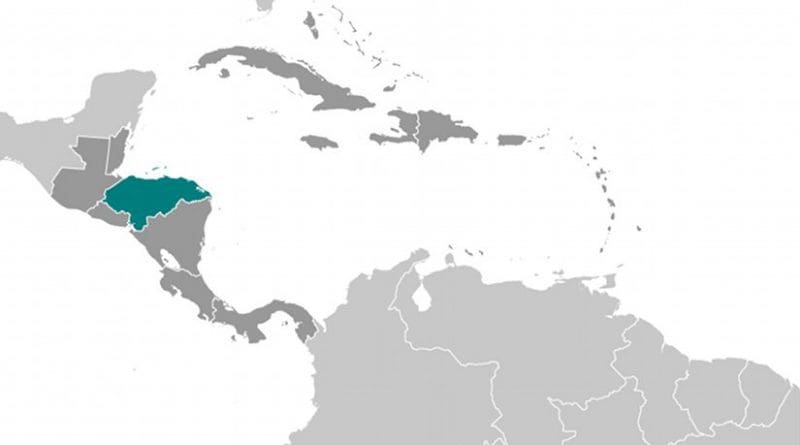Honduras: Fraud Accusations Tarnish Presidential Election
The Central American Province of the Society of Jesus denounced in a statement issued in early December “the lack of professionalism and ethics of the Supreme Electoral Tribunal (TSE)” for its “gross manipulation” of the Honduran electoral process “that tries to disrespect the popular will manifested in the ballot box” in the presidential elections held on Nov. 26.
The Central American Jesuits pointed out “the TSE goes from one stumble to another to hide an unexpected victory of the opposition over the current president who did everything he could, legally or otherwise, to be re-elected” and demanded “respect for the popular decision expressed in the ballot box and the right to free expression that the Honduran Constitution itself guarantees.”
According to a preliminary report issued on Dec. 4 by the Electoral Observation Mission of the Organization of American States (OAS), “on election night citizens received no official information from the TSE on the votes tallied until 1:30 a. m. on the morning of Monday, Nov. 27. Because of that, the media was full of news about the exit polls, generating a battle over outcomes in which two candidates proclaimed themselves the winners.”
The OAS mission recommended that the TSE make public the results available up to that time. In a press conference, the president of the electoral body David Matamoros announced the votes obtained by each presidential candidate to 57.18 percent of the processed ballot boxes. The candidate of the Opposition Alliance against the Dictatorship, Salvador Nasralla, had obtained 855,847 votes (45.17 percent) until then, while President Juan Orlando Hernández, the candidate of the National Party, who is running for re-election, had received 761,872 votes (40.21 percent); a difference of 93,975 votes in favor of Nasralla.
Although 42.8 percent of the ballots were still pending to be processed, both Hernandez and Nasralla declared themselves victorious, while thousands of people took to the streets to celebrate.
Meanwhile, the OAS mission observed a number of problems in receiving electoral material coming from different parts of the country, including some ballot bags that arrived open or incomplete. Logistical coordination problems coupled with high levels of improvisation led to delays in scanning the material, on top of which the processing system was interrupted for 10 hours on Nov. 29. According to the TSE, this was because one of its servers collapsed and had to be replaced by a new one.
When the count restarted, the trend had been reversed and Hernandez appeared as the winner. From that moment on, violent protests broke out and in order to control them, the government decreed a state of emergency for 10 days starting on Dec. 2, during which the free movement between 6 p.m. and 6 a.m. in all or part of the country was prohibited.
Lack of transparency
According to the Committee of Relatives of the Detained and Disappeared in Honduras (COFADEH), until Dec. 6, the repression to quell the protests had left 14 people dead and hundreds wounded and detained.
For the OAS, “the uncertainty, lack of transparency and information deficit experienced this week is preventable and can be addressed.”
On Dec. 11, the TSE finalized the counting of the electoral records, and although it assured that it found no evidence of electoral fraud, did not proclaim the winner of the elections due to the fact that it must address the objections received. According to Matamoros, the results up to that time gave Hernández as the winner with 42.95 percent, compared to 41.42 percent of Nasralla. Although the deadline for the announcement of this election results is Dec. 16, the law establishes another 10 days for the parties to file nullity claims for the entire electoral process.
In 2009, the intention of then-President Manuel Zelaya (2006-2009) to consult the presidential re-election resulted in his overthrow seven months before his constitutional term was to expire in 2010. The excuse was that it violated the Constitution which prohibits a presidential re-election.
But in April 2015, the Supreme Court of Justice, which at the time supported the coup d’état against Zelaya, ruled in favor of two appeals of unconstitutionality filed by legislators close to Hernández — who assumed the presidency in 2014 — going against the constitutional prohibition and allowing his candidacy for reelection.
Hernández has also been involved in accusations of corruption. In June 2015, thousands of people, who self-described themselves as the Indignant Opposition, took to the streets demanding the resignation of the president after investigations by the Public Ministry discovered the transfer to private accounts of more than US$200 million from the Honduran Institute of Social Security, destined to the purchase of medicines and supplies and pension payments for old age and disability during the government of Porfirio Lobo Sosa (2010-2014). Part of that money passed into the hands of the ruling National Party.
As a result of the protests, in November of that year was installed the Support Mission Against Corruption and Impunity in Honduras (MACCIH), an accompanying and anti-corruption proposal that emerged as part of the dialogue held between the OAS, the government, the Indignant Opposition and civil society organizations.
Furthermore, international organizations consider Honduras to be the most dangerous country for those who defend human rights, the environment, and the land. More than 120 activists have been killed since 2010, among them Berta Cáceres, a renowned environmentalist, and indigenous peoples’ advocate, in March 2016.

